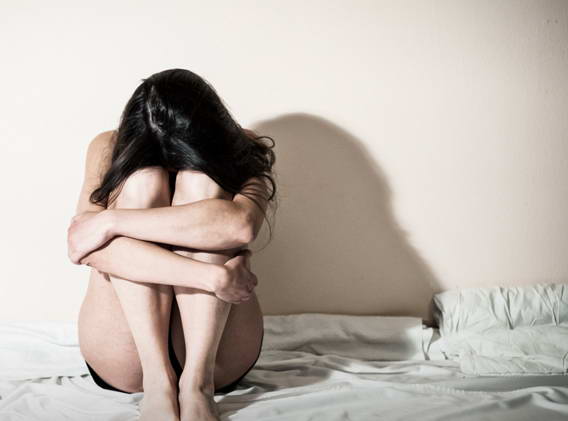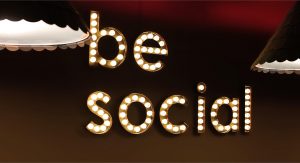Yoan (40 years old) is gay. He was sexually abused as a teenager. While studying in Flanders, a friend of the family who was hosting him raped him several times, and this had a huge impact on his self-confidence. For a long time he lived in shame, guilt and fear. His insecurities influence his life even today, especially sexually and relationally
According to a 2021 survey supervised by Professor Ines Keygnaert of the ICRH University of Ghent, approximately 48 percent of Belgian men go through at least one violent sexual experience in their lifetime. The psychological consequences of rape have a long-term impact on victims. Sexual harassment is associated with anxiety , post-traumatic stress, low self-esteem, shame and depression .
Yoan spoke to Michel-Ange Vinti about the consequences of the abuse for him. He talked about how difficult it is for him to have a healthy relationship with a man or to be touched. How can she overcome her shame to have a fulfilling sex life?
I grew up in the countryside of Wallonia. At first, I had romantic relationships with girls, but when they wanted to have sex , I always felt withdrawn and found reasons to end the relationship. As a teenager, there was playful touching between me and my boy friends. And so. But then something happened that changed my life.
I went to study abroad for a year. I lived with a host family. During this time, I was abused by an adult, a family friend. And sometime during that time I realized that I was extremely ashamed, but at the same time I was turned on. A 15-year-old boy’s body reacts to any physical stimulus. I was forced to do something I didn’t want to do, but somewhere deep inside I felt a desire, so I didn’t understand what was going on. It took me many years to understand that I was a victim of abuse. An adult had taken advantage of my sexual blossoming and my innocence.
Shortly after that, my parents found out I was gay without me telling them. The host family had read my emails and sent them to my parents without telling me. I had to admit to them that something had happened between me and a man. The abuse had ended, but so had my parents’ trust in me. My host family thought I made up the abuse thing because I was afraid to admit I was gay.
After that, my parents kept an eye on me around the clock, I wasn’t allowed to go out. I went to college in Brussels, but I wasn’t allowed to stay there on weekends, so I wouldn’t go to gay clubs. So I always felt shame, guilt and anxiety about my identity. And this manifested itself in panic attacks and depressive episodes.
From the first days in Brussels, when I moved to the dormitory, I met a boy with whom I had a very beautiful love story. But my insecurities came out right away in this relationship because he would go clubbing on the weekends while I was forced to go home to my folks. In the end, it ended badly, like any love story.
 Since then, I have always sought monogamous relationships that would provide me with security. I tried to take care of myself and stayed away from the gay scene, because I didn’t associate with their values and behaviors. For example, any sexual debauchery disturbs me. Because of the abuse I went through as a teenager, my body has a rejection reaction to touch if it’s too direct. Some tell me I act like a woman. I like intimate and romantic gestures in a relationship, otherwise I can’t express my sexual desires.
Since then, I have always sought monogamous relationships that would provide me with security. I tried to take care of myself and stayed away from the gay scene, because I didn’t associate with their values and behaviors. For example, any sexual debauchery disturbs me. Because of the abuse I went through as a teenager, my body has a rejection reaction to touch if it’s too direct. Some tell me I act like a woman. I like intimate and romantic gestures in a relationship, otherwise I can’t express my sexual desires.
I don’t even want to think about a one-night-stand. I can’t have sex with a person if they don’t appreciate me for who I am, for my personality. If someone just wants sex, I tell them to find someone else. I need to be seen as an individual with a personality and vulnerabilities. And it is from these vulnerabilities that many beautiful things can emerge.
It saddens me that I’m often asked why I’m not like everyone else, why I don’t have relaxed sex like everyone else. Many use drugs to be more uninhibited. I did that too, but sometimes I got into dangerous situations. Plus I couldn’t remember anything afterwards and I didn’t like that. Then I’m afraid to invite someone I know from Tinder home. What if I am robbed or attacked? You can never know.
Now I’m doing therapy and it’s helping me a lot. At first, I was always complaining to the therapist, “Why can’t I be as relaxed as other gay men? Why can’t I fit into their world?” The therapist helped me understand that I am who I am because I went through a different process than the rest and that drugs will not help me regain my self-esteem.
Today I accept that I don’t fit into the gay world. I’m not into one night stands and that’s ok. I don’t judge those who prefer them – I wanted to be able to live like that for a long time too. But this is who I am and it’s important to respect myself as I am, to respect my vulnerabilities and to create an atmosphere of safety for myself so that I can love and explore my sexuality.
When you go out with your friends in your twenties, you get swept up in the maelstrom of life. I had a very addictive personality, I wanted to experience everything very intensely. That’s how I am now: when I’m happy, I’m euphoric, when I’m sad, I’m depressed. But over time, I realized that I needed different entertainment than my friends. If they like going to party after party, I’d rather retire to someone’s house with a small group of mostly straight friends, or go out in nature instead of taking drugs.
But I still have moments of anxiety where I’m afraid I’m wasting my life when I’m sitting at home reading a book or watching a movie and seeing my friends posting party stories. I feel sad that I don’t have a support group, that I can’t find more gay guys who share my values.
I appreciate the security that monogamy brings, but sometimes I feel like it’s a trap. When I fall in love with someone, I want to satisfy them at any cost, even if it means sacrificing my own needs, because I want them to be good. I want to be perceived as flexible, not rigid. But it takes time to build something stable with someone.
I have to be in love to feel that I exist. In the last few months I suffered another disappointment in love and I finally understood that I exist outside of a relationship. But still, love remains the main reason for my existence.
The testimony is part of the second season of the Être un homme podcast , created by Michel-Ange Vinti and produced by Julien Barbier and Studio Balado.
